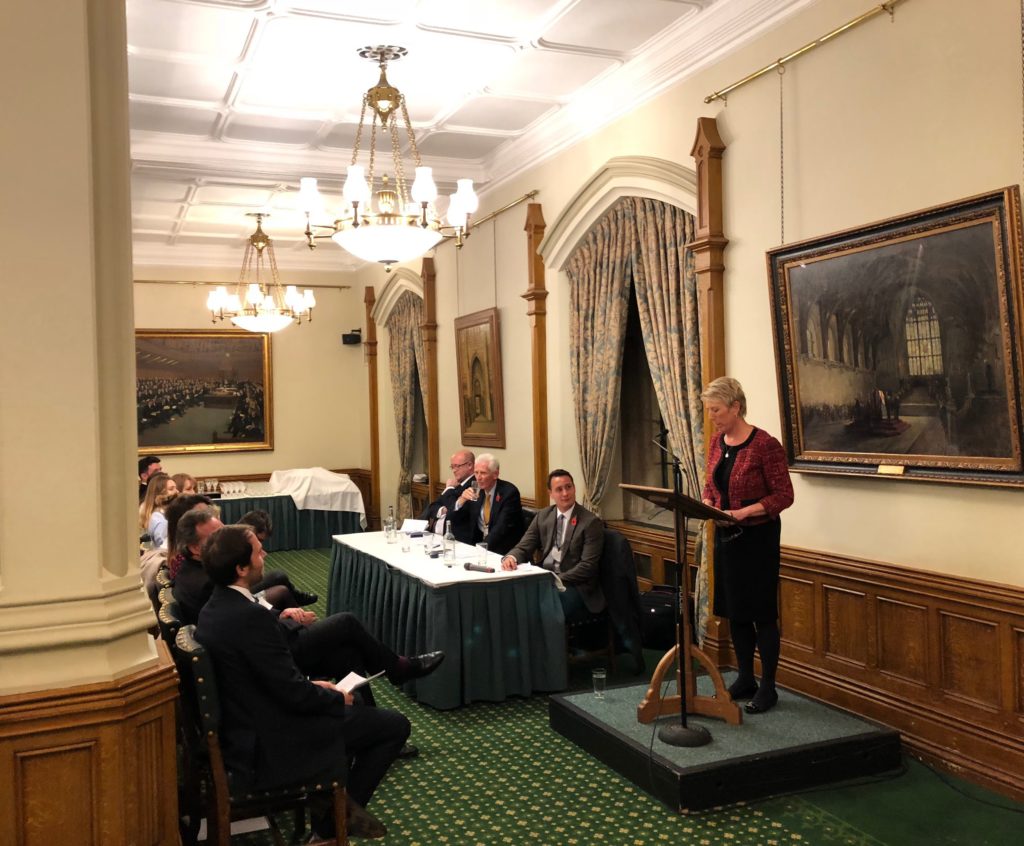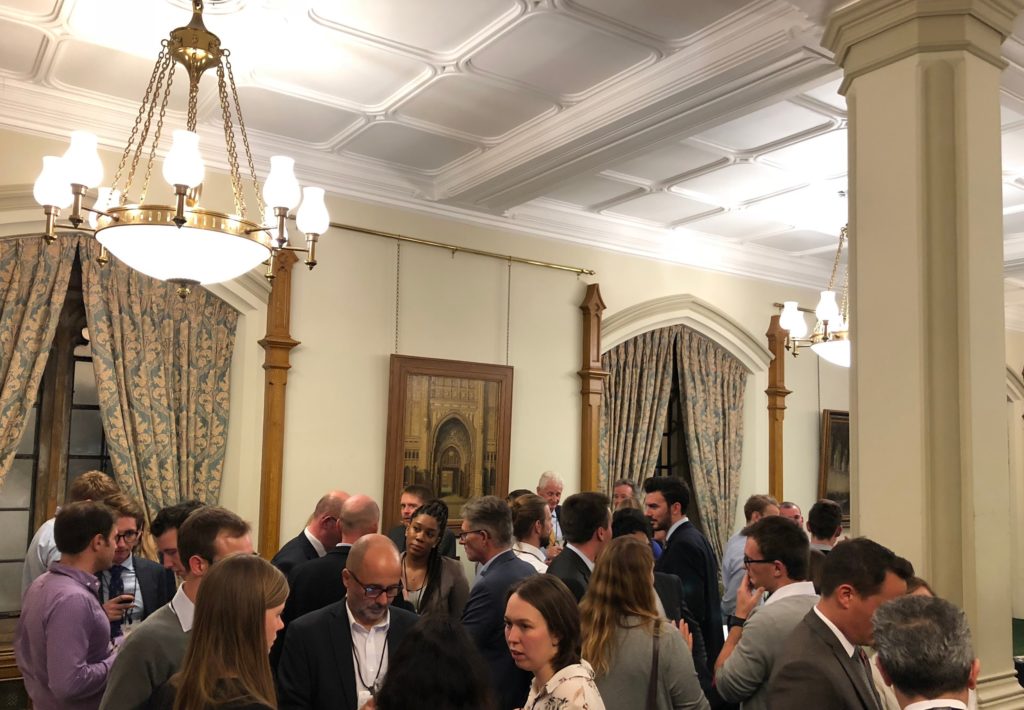PESGB Young Professionals House of Commons Panel Discussion Review
How can public perception of the oil and gas industry be improved in a carbon conscious future?
29th November 2018
With
Angela Smith, Member of Parliament for Penistone & Stocksbridge
Malcolm Brown, former EVP of Exploration for BG Group
Ken Cronin, Chief Executive of United Kingdom Onshore Oil and Gas
Jack Rivers, Associate Director of Technical Research within the Upstream group at IHS Markit
The PESGB Young Professionals convened in late November at the House of Commons for our annual Panel Discussion, the highlight of our events calendar. All tickets were sold out with the event open to all PESGB members regardless of experience. Our distinguished panel were invited to discuss how public perception of the oil and gas industry can be improved in a carbon conscious future. The challenging subject did not dissuade the strength of argument presented by all four speakers.
The debate was introduced by Jack Rivers giving a thorough overview of the challenges that laid ahead for the UK and the industry as a whole with carbon in centre focus. This was presented in the light of other political challenges that test the industry; Europe’s energy security, China and India’s thirst for energy and the USA and Russia’s fight for market dominance. The demand for oil and gas is not diminishing but growing, and whilst renewables make all the headlines, it is fossil fuels which are keeping the lights on and will for considerable time to come.
Ken Cronin and Malcolm Brown both continued this line but also gave views from differing experiences of the industry. The challenge presented was one around communication with the general public, which needs vast improvement. Only the week before had Cuadrilla resumed operations on their site in Lancashire and the media was therefore full of reports along with misleading images of shale beds seemingly a few feet below the surface being fractured. Furthermore, micro-seismic events were being reported at the site with headlines including the words “rocked” and “red event”. Some media companies, with their contest to have the most-viewed content, are employing inflammatory language and evocative images which feed into the dominant view that the oil and gas industry is bad.

Malcolm Brown addressing the audience in the Churchill Room
Another important and difficult point to address is the general public’s understanding of energy. Aside from at the petrol pump, the relationship between receiving energy and the source (and sometimes cost) of that energy is abstract to most of us. We flick a switch and we have light, we swipe a card and we jump on a train to be transported somewhere. As one anecdote presented at the debate put it; many of us have never had to buy and carry coal into our homes for heat and light. We therefore cannot comprehend the significance of the oil and gas industry which exists in every facet of our lives. Again, this lack of awareness comes back to the need for communication. There is perhaps the more direct message that coal- and gas-powered stations produce electricity for our homes. However, what about the more obscure oil-derived products which are added to everyday items such as toothpaste, ink, aspirin, food preservatives and almost anything containing plastic to name but a few. Would people be as quick to label the industry as “evil” with the full knowledge of what it actually contributes?
Angela Smith MP gave a fascinating perspective from the political realm within the UK. Agreeing with the points raised by the previous speakers, it was stated that Westminster had not done its best informing the public about its decisions. The policy thus far had been one of telling the public that fracking was going ahead, and not to describe why or how. It was therefore easy for opponents to challenge Westminster on fracking. What has been missing is the engagement of politicians with their respective constituencies on fracking, from the rules and regulations companies like Cuadrilla have to follow, to the UK’s energy needs and the dependency it has on other countries for energy supply.

Angela Smith MP addressing the audience
So, what needs to happen to improve the public perception of the oil and gas industry in a carbon conscious future? Unfortunately, whilst the debate was excellent in framing a number of the items which are feeding the negative public perception, there was little time for discussion on how it can be balanced. A strong theme throughout the evening was that, whilst great efforts are being made, there needs to be more communication and education about the industry. But from who; the government, the news media, the industry, the companies, the industry representative bodies, the individuals working in the industry? And how? Should this be driven by all of us, through our friends and on social media discussing the benefits of the industry to society? Or by oil & gas companies? Or should it come from politicians, and if so, do politicians need help to understand the industry better? It is uncertain as to which direction taken by the industry may be the most effective, but we can be certain that the problem of the negative public perception of our industry is only going to grow.

PESGB members after the debate discussing the issues highlighted
The PESGB Young Professionals Committee thanks the panel and the audience for their participation, without which the event would not have been such a success. In addition, we thank the PESGB for its continued support of the Young Professionals and The Oil & Gas Technology Centre for their sponsorship. The discussion provided an excellent learning and networking opportunity, befitting of our showcase event, and the Committee aims to build on this success for next year’s event.

